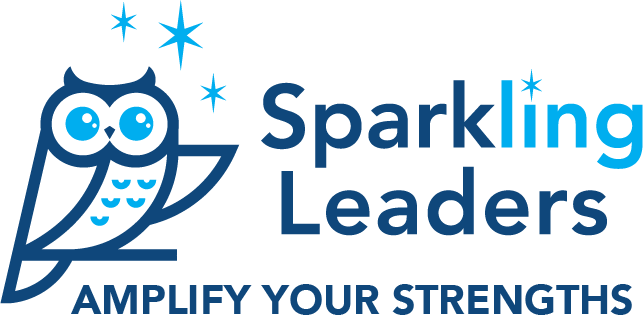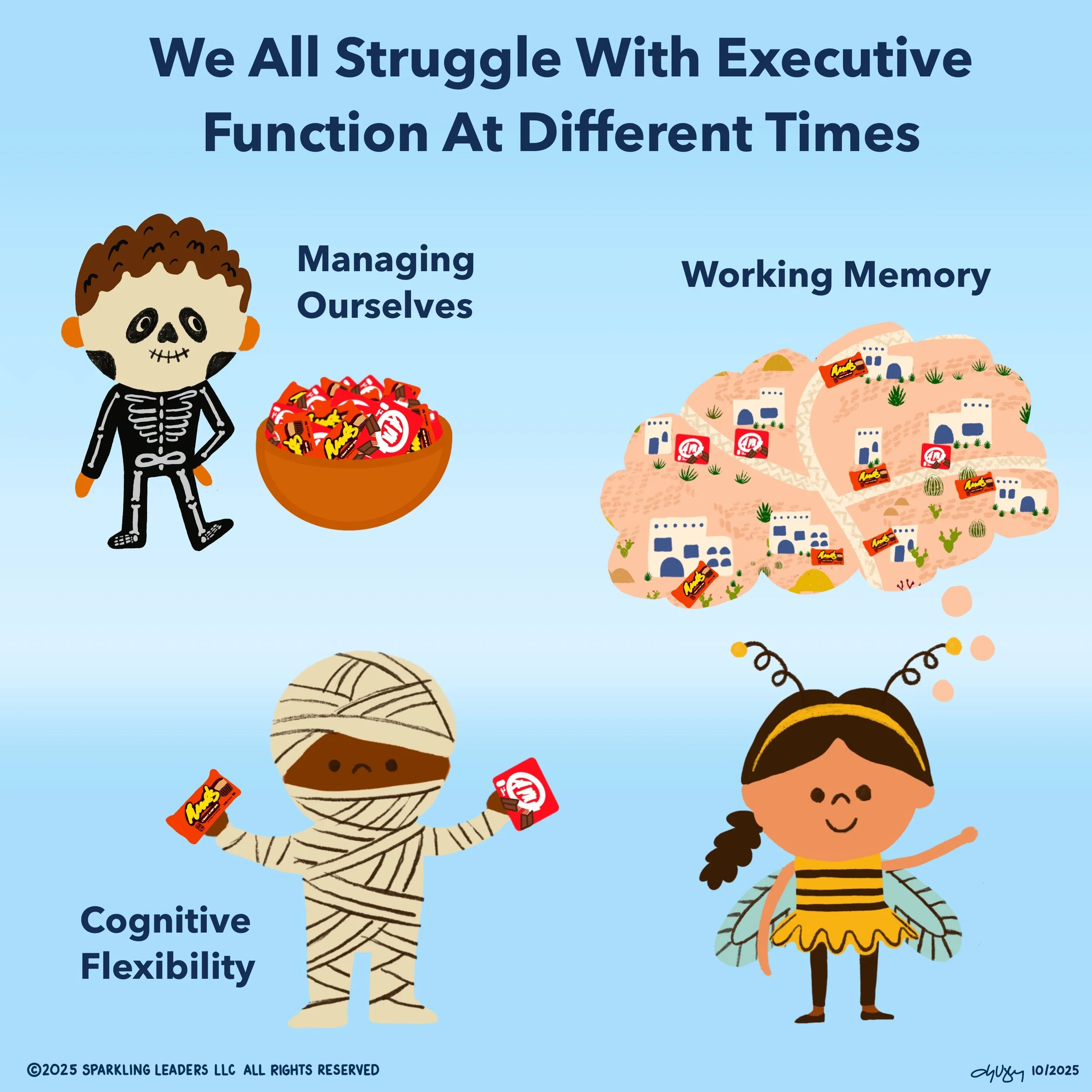Executive Function Skills!
Even if you don’t have ADHD, most people struggle with executive function skills when they experience changes such as a new job, a move, or a loss.
What situations are particularly difficult for you?
I’m challenged by overscheduling, and I overschedule myself a lot. I just get so excited to do everything… Travel is particularly hard for me because I often try to fit a week of work into the days I’m not traveling, I want to do/see a lot while I’m traveling, and then I forget to clear enough time on my calendar when I return in order to relax.
Halloween and holidays in general can also be challenging. I’m working on a future post with holiday tips. For Halloween, I make sure I have healthy food in the house and eat well during the day. If I have too much sugar, a low bar for me since I don’t eat very much sugar, my emotional control suffers.
There are eight commonly identified executive function skills. Neurodiverse individuals may be challenged by one or more of them in different situations.
One of the most difficult parts of having a hidden disability like ADHD is that the challenges are variable. It’s hard to explain how, on some days, it’s easy to focus in meetings, work independently on projects, and communicate effectively about timelines, whereas on other days it feels like one’s brain is submerged in goo.
Which executive function skills are generally easier for you?
My executive function skills are more accessible when I take care of myself (eat well, sleep, exercise, look for the positive, etc.).
Each month, I’ve been creating some type of tracking log to be more aware of what I need. This month, I’m working on growth zone activities and celebrating doing something a little scary every day. Recording the things I’ve done makes me proud, and it’s helping me strengthen some of my executive function skills.
What helps you strengthen your executive function skills?
I hope the information above can help you give yourself and others some slack.
Below are a few additional thoughts in honor of ADHD Awareness Month.
Take care of yourself: eat foods that work for your body when your body needs them, stay hydrated, sleep, practice self-compassion, and move your body.
Recognize that we are all doing the best we can with what we know at the moment
Look for what is going well
Shed assumptions about what others are thinking
Accept the variability of being neurodiverse (for ourselves and others)
Link to my ADHD resources and to my earlier blog article with my favorite ADHD books


